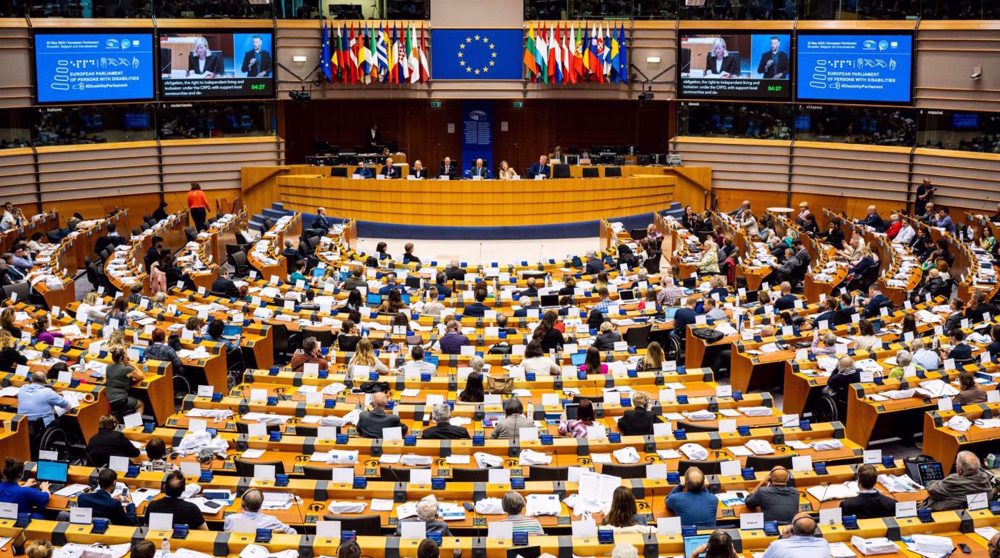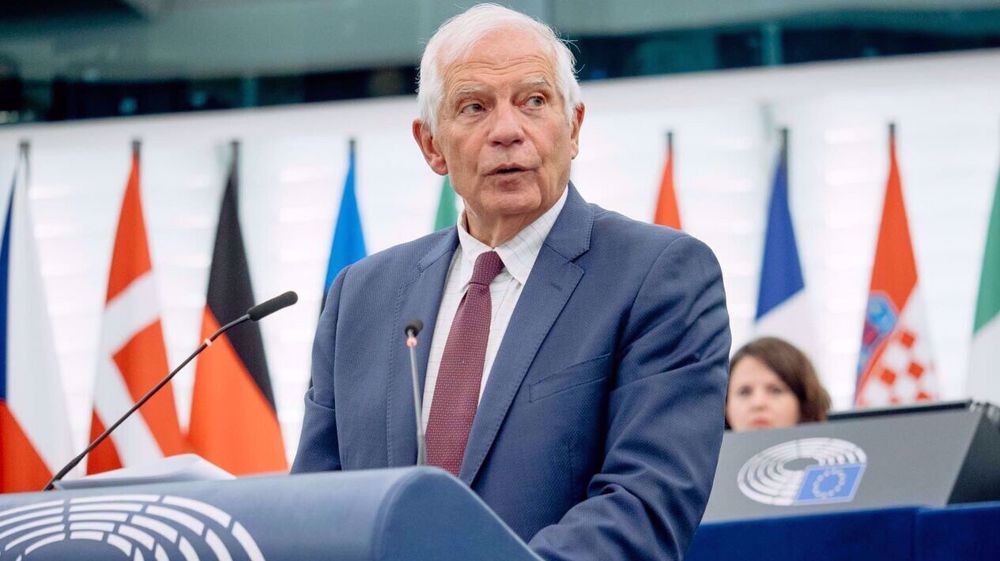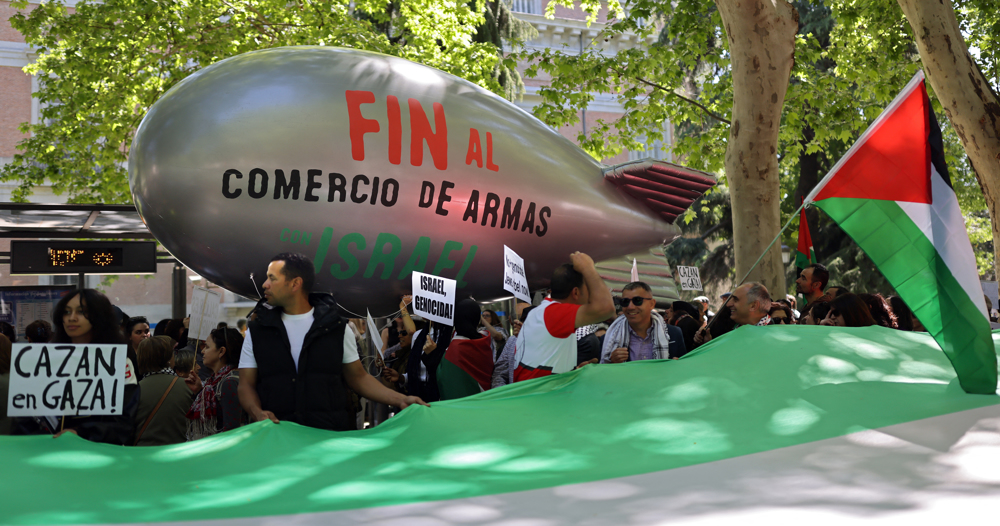World at its most dangerous point in generation: NATO head
The NATO chief says the world is currently at its most dangerous point in a generation, citing ‘threats’ by Russia and the North Korean weapons program to support his remarks, without touching on the US-led Western military alliance’s role in global conflict zones.
In an interview with The Guardian published on Friday, Jens Stoltenberg, the Norwegian secretary general of the North Atlantic Treaty Organization (NATO), said the world today is increasingly perilous given the number of the converging threats it is facing.
“We have proliferation of weapons of mass destruction in North Korea, we have terrorists, instability, and we have a more assertive Russia. It is a more dangerous world,” according to the NATO head, who was speaking during his visit to an Estonian military base near the Russian border.
Stoltenberg, however, appeared reserved when asked if he supported US President Donald Trump’s aggressive rhetoric and threats against North Korea, which many observers regard as the contributing factor to tensions on the Korean Peninsula.
“If I started to speculate about potential military options I would only add to the uncertainty and difficulty of the situation so I think my task is not to be [sic] contribute to that. I will support efforts to find a political, negotiated solution,” he said.
He also voiced support for Japan and South Korea’s US-backed military measures amid tensions with the North.
“I fully understand and support the military message that has been implemented in the region by South Korea and to some extent Japan, as they have the right to defend themselves. They have a right to respond when they see these very aggressive actions. I also support the presence of US troops and capabilities in Korea,” he said.

Stoltenberg’s remarks come amid rising tensions on the Korean Peninsula after Pyongyang, angered by soaring Washington-Seoul military moves, test-fired a ballistic missile last month that traveled over Japan, threatened the US Pacific territory of Guam and tested a hydrogen bomb.
The North says it needs to improve its military and nuclear capabilities as deterrence against a possible US invasion. Pyongyang has repeatedly urged Seoul to stop its annual war games with Washington, which it views as a rehearsal for a war against the North.
Washington has also infuriated the North by deploying the so-called THAAD missile systems to South Korea’s soil, a move which has also elicited protests from the South Korean public as well as Russia and China.
The latest spate of North Korean weapons tests came after Trump threatened in August to unleash “fire and fury” on North Korea.
Stoltenberg was speaking after he completed a tour of NATO’s four battle groups stationed in Estonia, Latvia, Lithuania and Poland, which form the alliance’s advanced forces in Eastern Europe at the Russian doorstep.
Russia has been wary of the US-led alliance’s military buildup near its border, viewing it as a threat to its national security.
The NATO leader emphasized that the “defensive” mobilization served as a message to Moscow that an attack on a NATO ally was an attack on all, and that he remained confident about the security of Eastern Europe.
He further pointed to the biennial Russian-Belorussian Zapad exercises scheduled for September 14-20.
The large-scale drills will see thousands of servicemen active around the Baltic Sea, western Russia, Belarus and the Russian exclave of Kaliningrad.
Stoltenberg expressed concern over what he described as Russia’s looming failure to live up to its international obligations to allow observers for the military drills.
“Russia has said it is below 13,000. They briefed that on the NATO-Russia council a few weeks ago,” Stoltenberg said. “That was useful but at the same time we have seen when Russia says that an exercise has less than 13,000 troops that’s not always the case. We have seen that in Zapad 2009 and 2013 – the two previous Zapad exercises. There were many more troops participating.”
Stoltenberg also insisted that the 29 NATO members remained united within the alliance, saying that he did not believe there was an imminent threat to member states.
NATO and its allies are planning to significantly increase their military activity on Russia’s borders ahead of the Russian-Belorussian drill.

Sweden, a member of NATO’s “Partnership for Peace” program, is hosting a rare 20,000-strong Aurora 2017 drills between September 11 and 29, with Finland, also not a NATO member state, in attendance.
The war games will be conducted in the air, on land and at sea, with the participation of a US Patriot missile battery, helicopters and a unit of National Guard tanks.
The NATO head also stopped short of pointing to massive weapon sales by NATO members, particularly the US, Britain, to promote the repressive regimes involved in deadly military campaigns and crackdowns.
Since 2014, the US and many of its NATO allies have also been bombing what are claimed to be Daesh positions in Syria and Iraq. The missions have failed to boost the fight against the world’s most notorious terror group, but have, instead, claimed hundreds of civilian lives and taken a heavy toll on the Arab country’s infrastructure.
In Afghanistan, the US and its allies have failed to contain the militancy fueled by the Taliban militant group, more than a decade into their invasion of the Asian state.
In addition to deadly Taliban militancy, Daesh has also managed to expand its terror activities to Afghanistan despite the presence of thousands of foreign boots on the ground in the war-torn country.
Region to benefit from Iran-Sri Lanka cooperation: Raeisi
Iran dismisses US allegation of ‘malicious cyber activity’
Calls grow for probe into mass graves Israeli forces left in Gaza
VIDEO | From shadow to spotlight
Iran, Pakistan urge UNSC to hold Israel accountable for atrocities
VIDEO | Negotiations stalled
Israeli settlers – protected by military – intrude into Al-Aqsa Mosque
VIDEO | Smirking at lies













 This makes it easy to access the Press TV website
This makes it easy to access the Press TV website